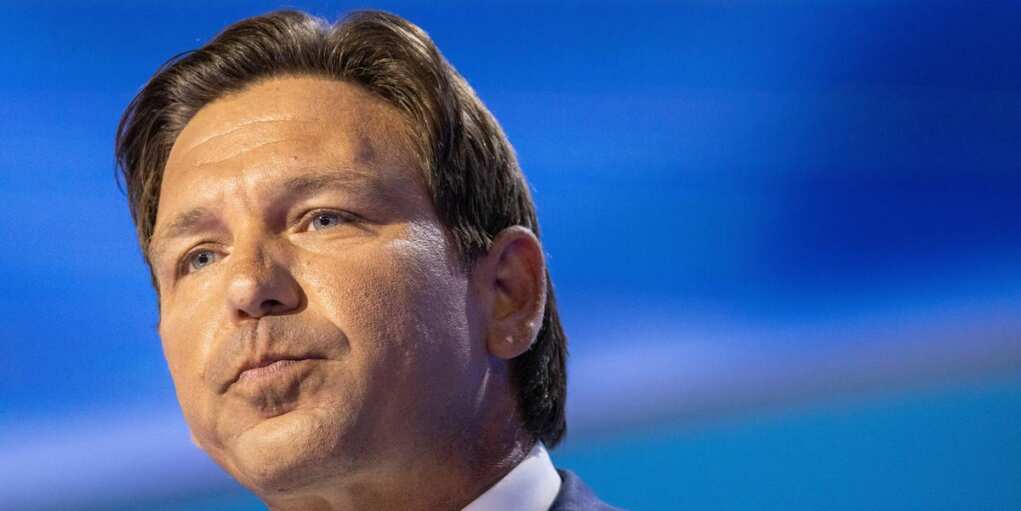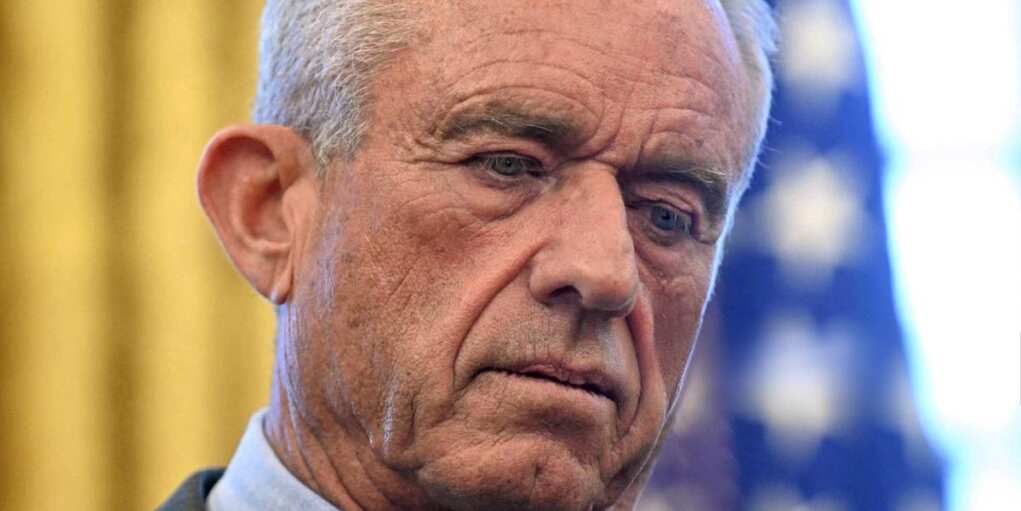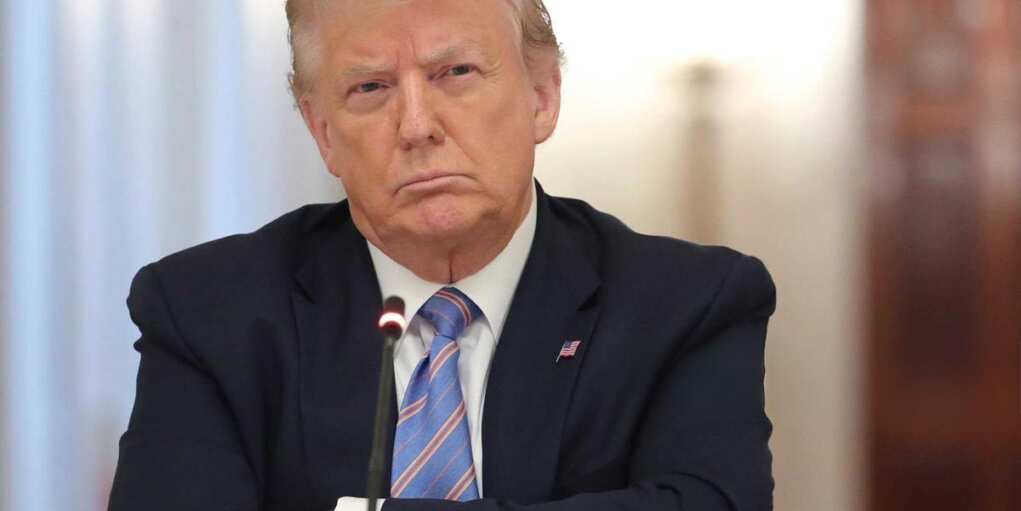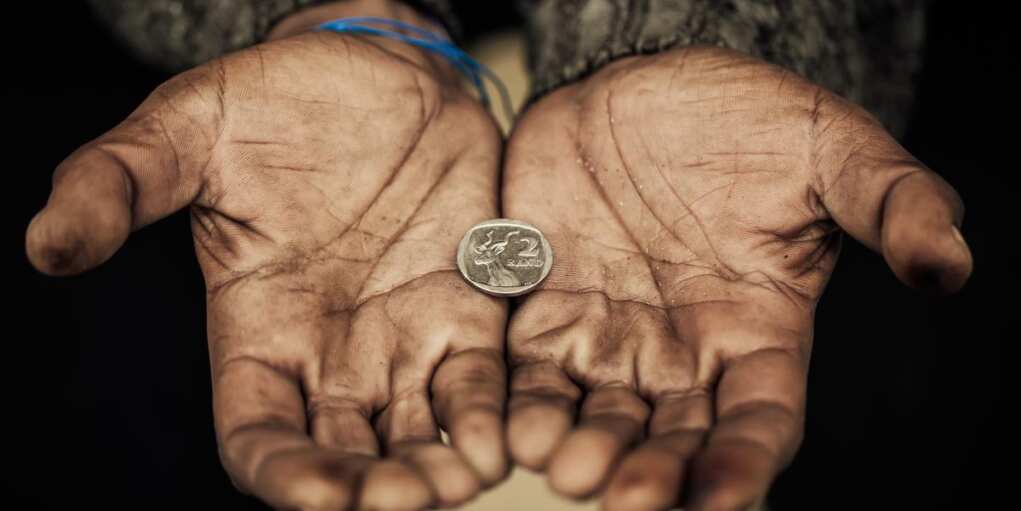Senate Rebels Against Trump Tariffs—4 GOP Senators Join Dems
mark reinsteinIn a stunning rebuke to President Trump’s trade policy, the Senate voted 51-48 on Wednesday to terminate his emergency declaration that imposed 25 percent tariffs on Canadian goods — a move the president had framed as essential to combatting fentanyl and defending American manufacturing. Four Republicans broke ranks and joined Democrats to pass the resolution: […]
DeSantis Unloads on GOP Supermajority: “Embarrassing,” “Petty,” and “Useless”
Maxim ElramsisyIn a fiery double-barreled attack on his own party, Florida Gov. Ron DeSantis let loose on state House Republicans this week for failing to deliver on key conservative priorities—even with a massive GOP supermajority. And he didn’t hold back. The governor ripped into House leadership for what he described as “petty” and “embarrassing” behavior, accusing […]
Wisconsin Voters Just Locked in Voter ID — and Trump Is Celebrating
Studio RomanticPresident Donald Trump is celebrating a major victory in the battle for election integrity after Wisconsin voters overwhelmingly approved a constitutional amendment to require voter ID at the ballot box. The measure, known as Question 1, cruised to passage on Tuesday night with nearly 63% of the vote — a result Trump immediately called a […]
RFK Jr. Unveils Bold HHS Overhaul to Slash Waste
JimwatsonTrump’s Health and Human Services Secretary, Robert F. Kennedy Jr., sat down with BlazeTV’s Sara Gonzales to dish on his massive restructuring of the agency—a move that’s got the GOP cheering as a strike against decades of government sprawl. Gonzales kicked things off by asking about the overhaul she’d spotted just that morning, and RFK […]
Trump’s Genius Shakes Up Allies – Goldberg’s CNN Meltdown Can’t Stop Him!
Chip SomodevillaJeffrey Goldberg, editor-in-chief of The Atlantic, claimed Monday on CNN that U.S. allies may start withholding valuable intelligence from the Trump administration over what he called “reckless” behavior, including the use of unsecured messaging apps and foreign policy threats aimed at NATO partners. Appearing on The Lead with Jake Tapper, Goldberg blasted reports that senior […]
Stranded Astronauts Thank Trump and Musk After 9-Month Space Rescue
Vladi333Two NASA astronauts stranded aboard the International Space Station for more than nine months returned to Earth with powerful words of gratitude for Donald Trump and Elon Musk. Originally scheduled for an eight-day mission, the astronauts were left floating in orbit after Boeing’s Starliner capsule failed. It was SpaceX—and the Trump administration—that ultimately got them […]
Trump Orders Federal Cleanup of Crime-Ridden D.C.
santoeliaDetermined to restore law and order to the nation’s capital, President Trump signed a sweeping executive order Thursday that creates a federal task force to clean up Washington, D.C., combat violent crime, and erase the physical decay that’s plagued the city in recent years. “It is the policy of the United States to make the […]
Trump Team’s Blunt NATO Messages Just Got Backed—By the UK
Jacek Wojnarowski“The Americans have absolutely got a case.” That’s how British Defence Minister John Healey responded this week when asked about leaked Trump administration messages slamming Europe’s lackluster defense contributions. While European leaders continue to clutch their pearls over alleged Signal app comments from Vice President JD Vance and Defense Secretary Pete Hegseth—calling European allies “pathetic […]
Supreme Court Sides With Biden-Era Gun Crackdown
Dennis MacDonaldIn a disappointing twist, the Supreme Court has upheld a leftover regulation from the Biden era targeting so-called “ghost guns”—those DIY firearm kits that, until recently, were perfectly legal to own and assemble. Despite the current administration being led by President Trump, the Court ruled 7-2 in favor of keeping the Biden-instituted crackdown in place, […]
Democrats Trigger State Budget Meltdown – DEI Is Backfiring BIG Time
Nolte LourensLos Angeles under Mayor Karen Bass is rapidly turning into a cautionary tale about what happens when progressive priorities collide with fiscal reality. After botching the city’s wildfire response earlier this year, Bass now finds herself grappling with a staggering budget deficit of nearly $1 billion for the upcoming fiscal year. In classic Democrat fashion, […]











